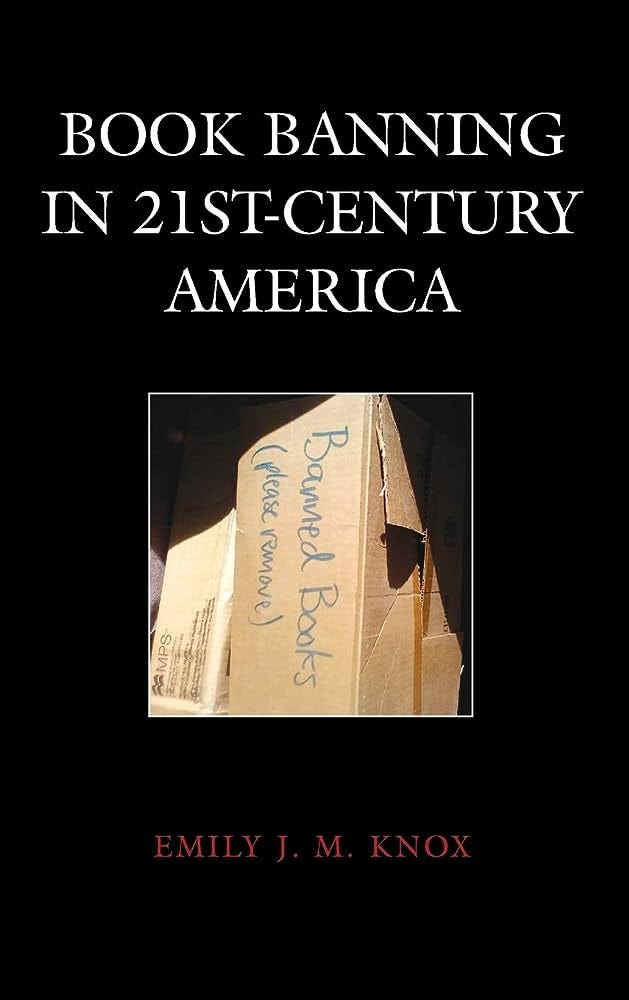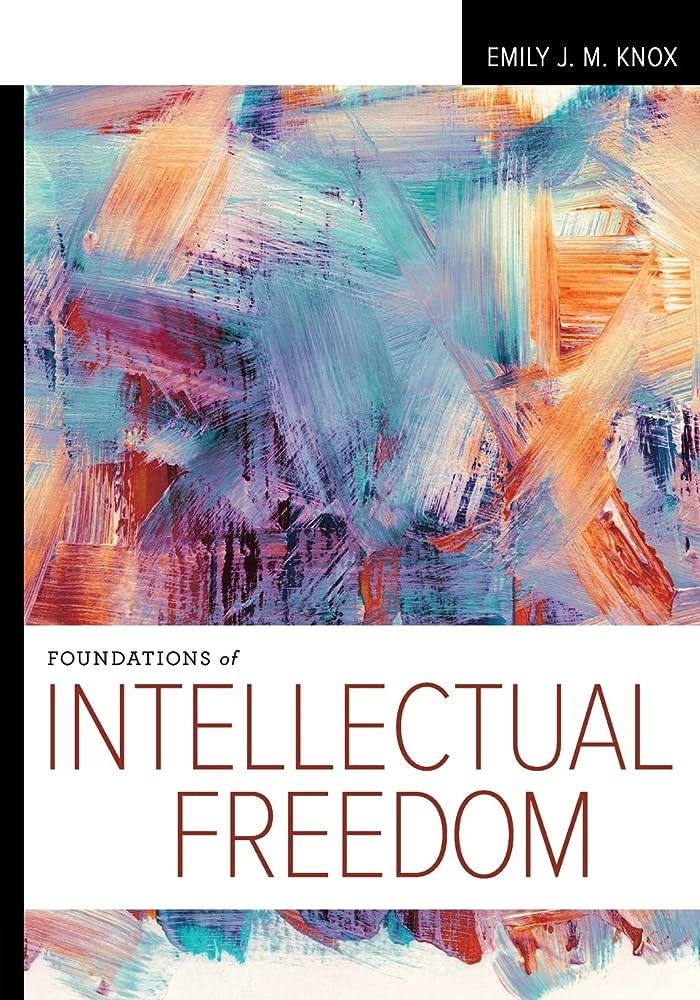Book Banning in 21st Century America, with Emily J. M. Knox
Circulating Ideas 246
Almost a decade has passed since Emily Knox wrote Book Banning in 21st Century America, but the passage of time has only sharpened its relevance, as our daily news feeds attest. The challenges to the freedom to read and the broader intellectual freedom landscape are escalating at an alarming rate, with social media and other online platforms providing kindling for the flames of censorship.
Knox’s research on this subject, including her new book Foundations of Intellectual Freedom, deftly navigates the complexities surrounding the controversies and debates over where the boundaries of free expression are drawn. She illuminates the reasoning behind those who advocate for book bans while also championing the vital importance of safeguarding the freedom to read. In no uncertain terms, Knox reminds us that intellectual freedom is core to our democratic values and that libraries play an essential role in protecting those values by providing access to open, inclusive, and diverse viewpoints in our collections.
CI246 Show Notes
Book Banning in 21st Century America
Requests for the removal, relocation, and restriction of books—also known as challenges—occur with some frequency in the United States. Book Banning in 21st-Century American Libraries, based on thirteen contemporary book challenge cases in schools and public libraries across the United States argues that understanding contemporary reading practices, especially interpretive strategies, is vital to understanding why people attempt to censor books in schools and public libraries.
Previous research on censorship tends to focus on legal frameworks centered on Supreme Court cases, historical case studies, and bibliographies of texts that are targeted for removal or relocation and is often concerned with how censorship occurs. The current project, on the other hand, is focused on the why of censorship and posits that many censorship behaviors and practices, such as challenging books, are intimately tied to the how one understands the practice of reading and its effects on character development and behavior. It discusses reading as a social practice that has changed over time and encompasses different physical modalities and interpretive strategies. In order to understand why people challenge books, it presents a model of how the practice of reading is understood by challengers including “what it means” to read a text, and especially how one constructs the idea of “appropriate” reading materials.
The book is based on three different kinds sources. The first consists of documents including requests for reconsideration and letters, obtained via Freedom of Information Act requests to governing bodies, produced in the course of challenge cases. Recordings of book challenge public hearings constitute the second source of data. Finally, the third source of data is interviews with challengers themselves.
The book offers a model of the reading practices of challengers. It demonstrates that challengers are particularly influenced by what might be called a literal “common sense” orientation to text wherein there is little room for polysemic interpretation (multiple meanings for text). That is, the meaning of texts is always clear and there is only one avenue for interpretation. This common sense interpretive strategy is coupled with what Cathy Davidson calls “undisciplined imagination” wherein the reader is unable to maintain distance between the events in a text and his or her own response. These reading practices broaden our understanding of why people attempt to censor books in public institutions.
Foundations of Intellectual Freedom
Featuring questions for further study and inquiry in each major chapter, this book introduces the key concept of intellectual freedom to those about to enter the profession, providing a concise overview of principles, ongoing and current debates, and best practices.
Enshrined in the mission statement of ALA, intellectual freedom is one of the core values of the information professions. The importance of ensuring information access to all, and the historical, social, and legal foundations of this commitment, are powerfully explored in this essential primer. Designed to function as both an introductory text for LIS students as well as a complementary resource for current professionals, this book provides a cohesive, holistic perspective on intellectual freedom. Extending beyond censorship to encompass such timely and urgent topics as hate speech and social justice, from this book readers will gain an understanding of
the historical and legal roots of intellectual freedom, with an in-depth examination of John Stuart Mill’s “On Liberty” and Article 19 of the U.N Declaration of Human Rights, and its central concepts and principles;
the intersection of intellectual freedom, freedom of expression, and social justice;
professional values, codes of ethics, ALA’s Library Bill of Rights, and Freedom to Read/View Statements;
pro- and anti- censorship arguments and their use in impeding and facilitating access to information;
book banning and internet filtering;
privacy and its relationship to information services;
U.S. case law and precedents;
the basics of U.S. copyright law, including fair use, and how it differs from international copyright law; and
emerging global issues and their impact on future intellectual freedom.
Emily J. M. Knox
Emily Knox is an associate professor in the School of Information Sciences at the University of Illinois at Urbana-Champaign. Her research interests include information access and intellectual freedom and censorship. She is a member of the Mapping Information Access research team.
Her most recent book Foundations of Intellectual Freedom (ALA Neal-Schuman) won the 2023 Eli M. Oboler Prize for best published work in the area of intellectual freedom. Her previous book, Book Banning in 21st Century America (Rowman & Littlefield) is the first monograph in the Beta Phi Mu Scholars’ Series. Emily’s articles have been published in the Library Quarterly, Library and Information Science Research, and the Journal of Intellectual Freedom and Privacy.
Emily serves on the board of the National Coalition Against Censorship. She is also editor of the Journal of Intellectual Freedom and Privacy.
Emily received her PhD from the doctoral program at the Rutgers University School of Communication & Information.
Mentions
Steve Thomas is a public library manager who lives in the suburbs of Atlanta with his wife, two kids, and one dog. He has worked in libraries for two decades and has hosted the Circulating Ideas podcast since 2011.
Currently Reading: All You Have to Do Is Call by Kerri Maher






